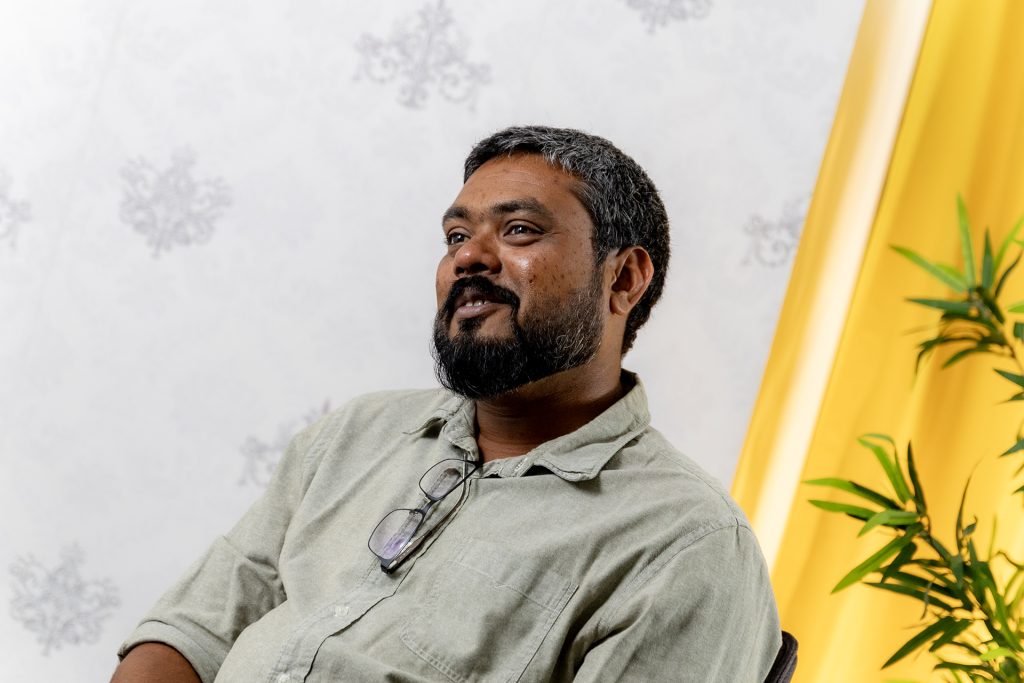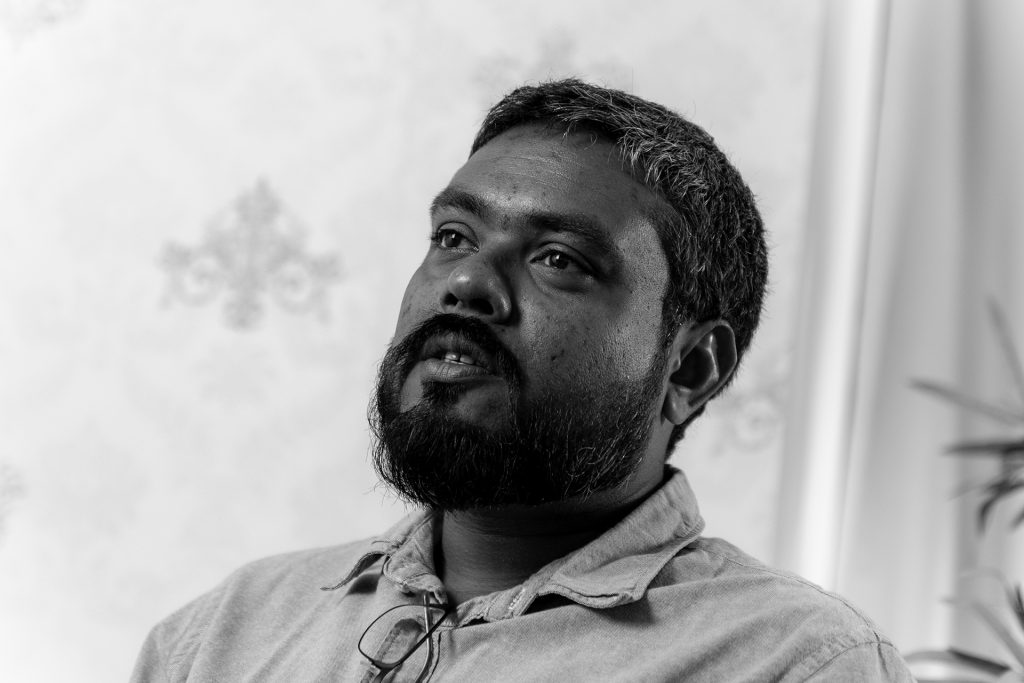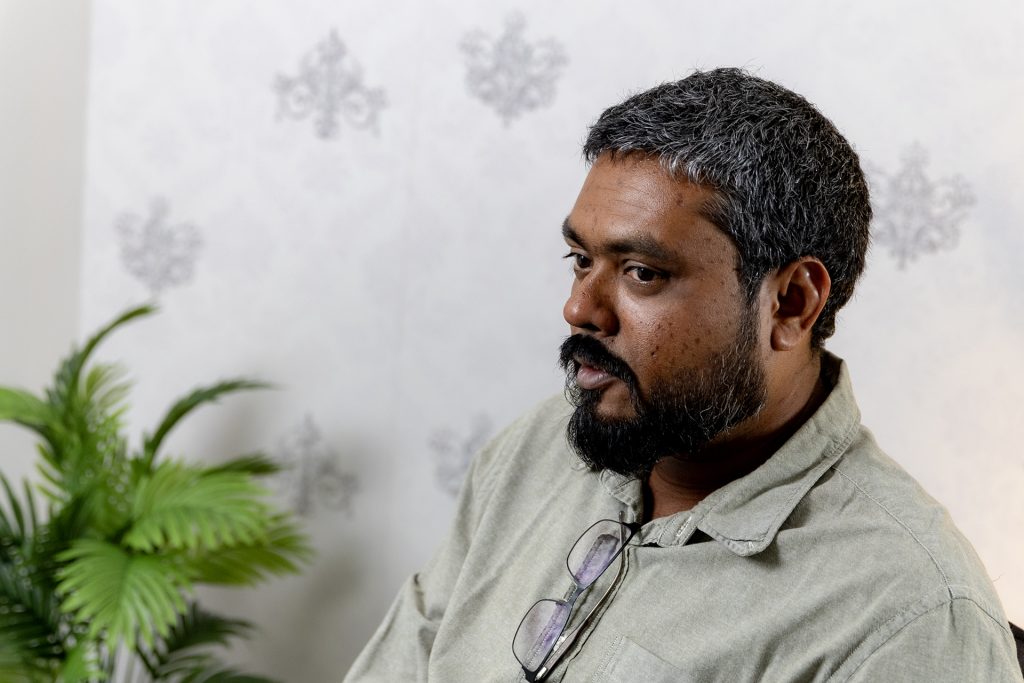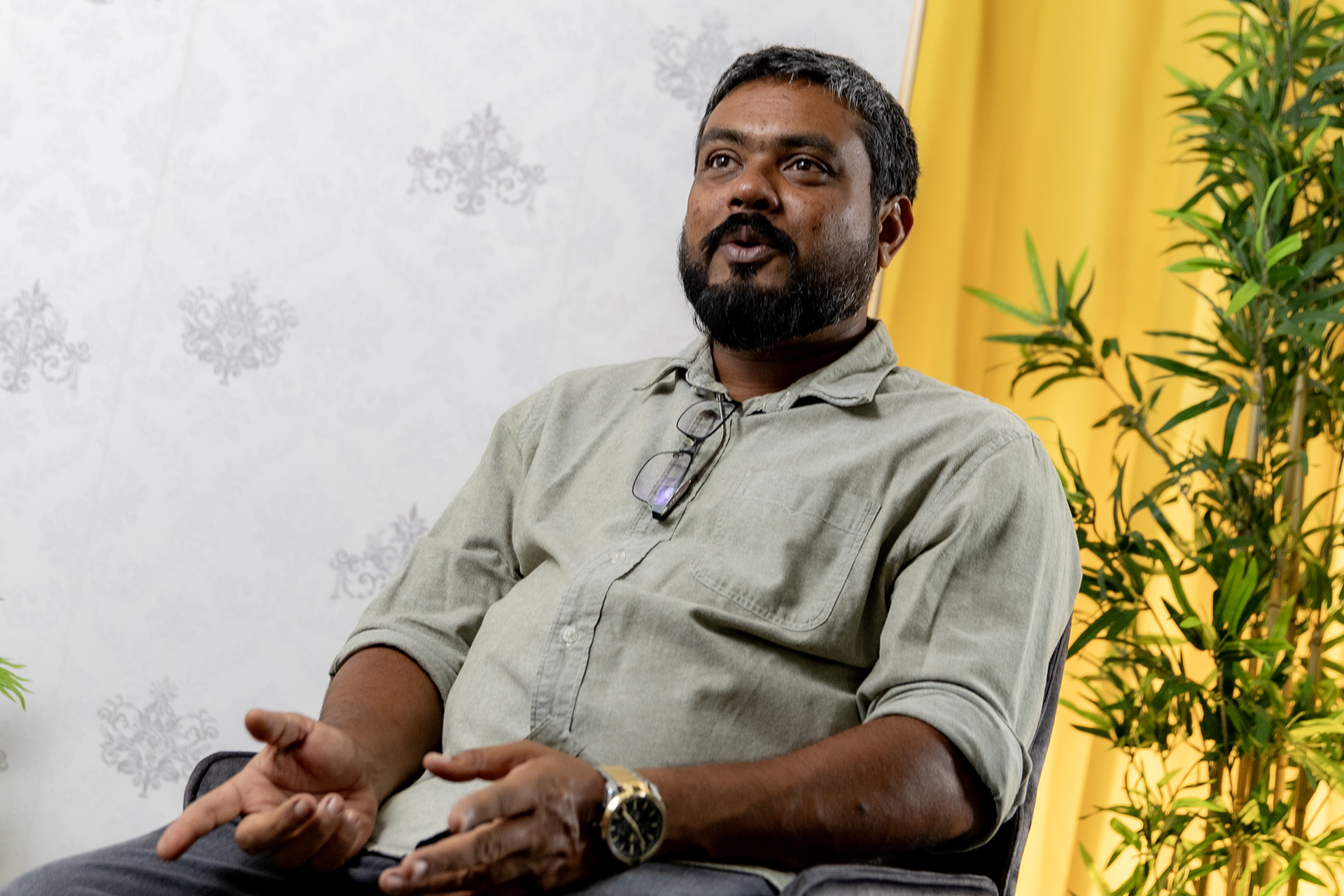
In recent years, there has been a notable rise in the interest among higher secondary education graduates to seek further education and training in aviation. Particularly, the aspiration to become pilots has seen a significant increase among young individuals.
This week’s Harufaiy program features the inspiring story of Ahmed Yasir, a skilled pilot with over 21 years of experience in the aviation industry, who is sure to captivate the attention of aspiring aviators.
Yasir’s aspiration to become a pilot originated from his experience with Microsoft Flight Simulator, a digital game he received from a friend.

On his initial day of training, he felt a mix of fear and excitement as he boarded the aircraft for the first time. His training commenced in Sri Lanka, where he observed the instructor piloting the plane while he sat alongside, experiencing a blend of anxiety and satisfaction as he took control for a brief moment. This pivotal experience, transitioning from virtual to real flight, reinforced Yasir’s commitment to his dream of becoming a pilot, motivating him to persist in his training.
Yasir was undergoing training at Skycabs School in Sri Lanka when the institution opted to shut down after approximately nine months, during the late 2000s. Subsequently, he returned to the Maldives. The following year, he traveled to the United States to continue his training, which commenced in February and concluded with his return to the Maldives in December.
“The initial opportunity arose with Maldivian Air Taxi, where securing employment proved to be somewhat challenging. I was accompanied by another Maldivian pilot at the Maldivian Air Taxi, and we were both stationed at the dock.”
During that period, the aviation sector in the Maldives offered limited job prospects. A year later, Yasir transitioned to TMA, commencing his flying duties there in January 2003.

At the age of 22, Yasir embarked on his career as a pilot, a notably young age for this profession. He considers this achievement a significant milestone. Over the years, Yasir advanced to the role of training captain, where he assumed the important duty of instructing new pilots during their initial test flights at his airline.
“Many of the new pilots I mentor express their gratitude for my training methods and the dedication I demonstrate in their development, and they all value this effort highly.”
Yasir is currently employed as a line captain on a seaplane for the national airline, Maldivian. As one of the most seasoned and experienced pilots in the airline, he actively participates in discussions regarding various operational matters.
After completing 15 or more years of service, pilots typically transition away from flying duties and focus solely on training roles. Nevertheless, flying remains a passion for Yasir. The airline accommodates his enthusiasm by allowing him to operate at least one flight daily upon his request.
We inquired about the changes that have occurred in the aviation sector in the Maldives over the past two decades.
“Significant changes have occurred recently, contrasting with the past when pilots had only one day off.”
Yasir observes that these changes have improved the workflow for pilots. In the early 2000s, the Maldives had a limited number of airlines, resulting in a greater number of destinations compared to traditional aircraft. Consequently, each pilot was assigned more flights daily.

Additionally, there have been substantial modifications to flight rules and regulations in recent years, mandating that pilots take two to three days of rest after flying during specific periods.
The pandemic posed the most significant challenge to employment across all sectors globally, impacting even pilots. In a nation like the Maldives, where advanced healthcare services are primarily accessible in the capital, pilots had to adapt to a new and unconventional working environment.
“Maldivian Airlines executed a significant operation in partnership with the MNDF and the Disaster Management authorities.”
Maldivian pilots played a crucial role in ferrying patients and healthcare professionals to remote regions. The pilots and cabin crew operated from the terminal and had not returned home for over two months. Among them was Yasir, who was tasked with the specific responsibility of transporting individuals who tested positive for COVID-19. This assignment marked a distinctive chapter in Yasir’s 21-year career.
Yasir’s most significant accomplishment is his record of avoiding major accidents. He remains committed to diligent work and has expressed his intention to maintain this determination moving forward.
